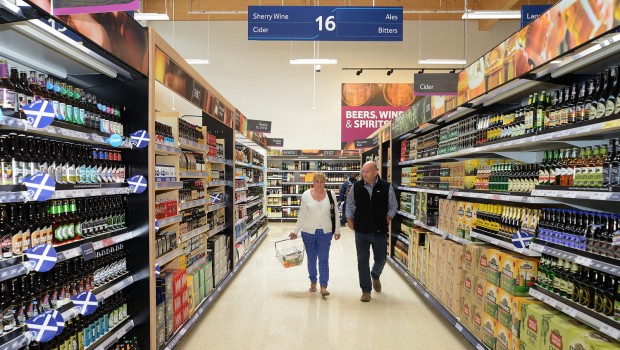UK retail sales growth slows, as shops brace for 'fierce' winter

UK retail sales slowed dramatically in September, as milder weather affected seasonal clothing purchases and the cost-of-living crisis prevented consumers taking on big-ticket items like furniture and electricals.
According to the monthly Retail Sales Monitor, put together by the British Retail Consortium (BRC) and KPMG, sales rose at a year-on-year clip of 2.7% in September, down from the 4.1% jump seen in August.
That was in line with the three-month average growth of 2.7% but well below the 12-month average of 4.2%.
Food sales were up 7.4% over the three months to September, while non-food sales were down 1.2%. In-store non-food sales edged just 0.3% higher over the three-month period, while online non-food sales dropped 3.6%.
“Sales growth in September slowed as the high cost of living continues to bear down on households," said BRC chief executive Helen Dickinson.
"Big ticket items such as furniture and electricals performed poorly as consumers limited spending in the face of higher housing, rental and fuel costs. The Indian summer also meant sales of autumnal clothing, knitwear and coats, have yet to materialise."
It's important to note that the BRC-KPMG figures are not adjusted for inflation. So, with inflation still running higher than normal levels, the overall rise in sales masked a likely drop in volumes once inflation is accounted for. "As inflation eases, so too will longer-term sales growth prospects," Dickinson said.
The BRC chief also said that coming months will be "crucial" for retailers after recent heavy investments to bring prices down.
Meanwhile, KPMG's UK head of retail Paul Martin pointing competition heading into the key holiday shopping season will be "fierce" this winter.
"Promotions [are] likely to be earlier and abundant in a bid to loosen tight household purse strings. Consumers will continue to seek out good deals, with price driving purchasing decisions. This is likely to be one of the most important golden quarters that we have seen in years, as for some in the sector, it could very much determine their future.”